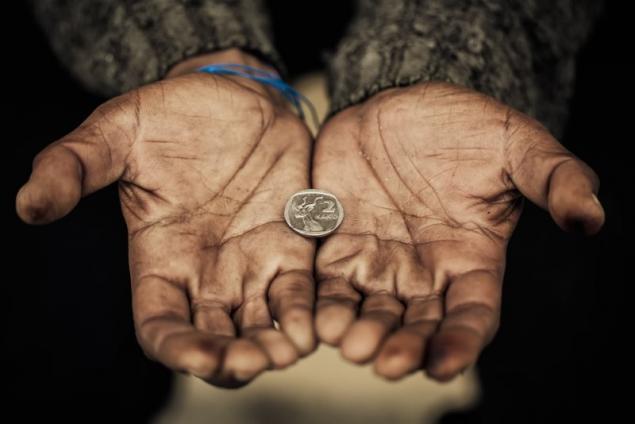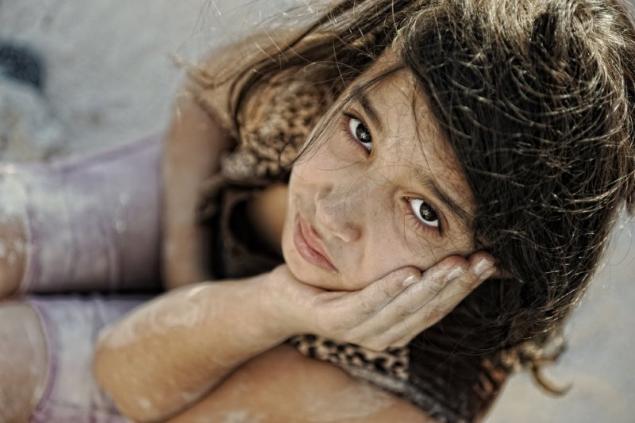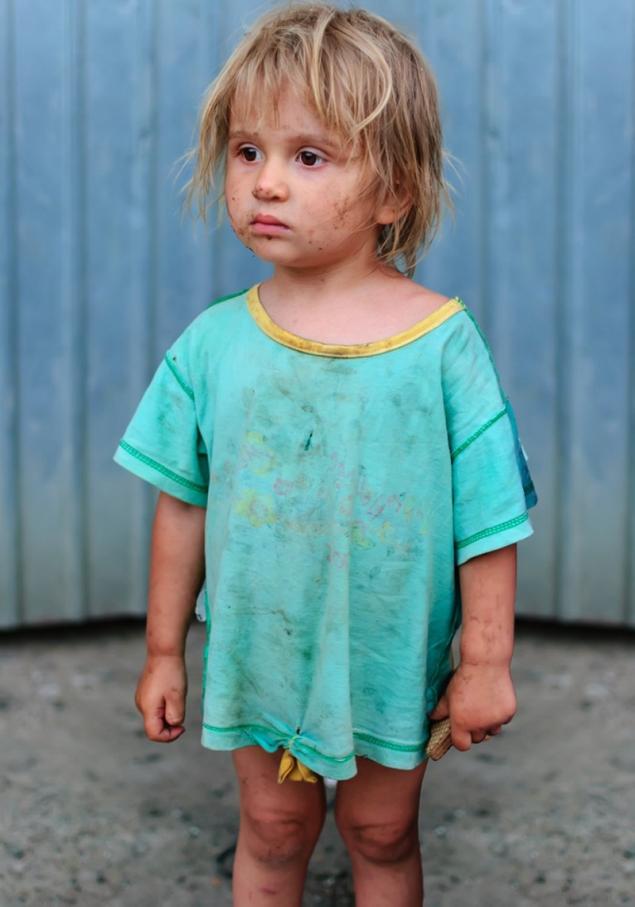146
How to get out of poverty
Poverty is not easy to get rid of. It is firmly rooted in the way of life of a person, his thinking, habits. Sometimes it seems that poverty is built right on the genetic level. As a result, poor parents have children who also live in poverty. Why is this happening, it’s not just about heritage?
Today's edition. "Site" I'm going to introduce you to two stories from our reader, who shared her observations about living in poverty. In these stories, you probably recognize someone you know, maybe even yourself.

DepositPhotos
Many people believe that living a poor life is not shameful. Rather, they are even proud of it, saying that if we live poor, then we live honestly. They fail to see how poverty becomes the basis of their mentality.
“As a child, I was friends with the neighbouring girl Valya. One of our favorite things to do was jump on the couch while her parents were away. We were so happy to see the dust that streamed around the room after our comforts. But when I visited Valle recently, I saw the same sofa.

It was the same as it was 20 years ago: rickety, with protruding springs and probably as dusty as before. I must say, other interior items corresponded to the situation: cracked flower pot, taped mirror, darkened with age, smeared chairs.

DepositPhotos: My mind refused to accept reality. Even if you don't have the money, can't you buy a new vase, glue the wallpaper that fell off, and make a fresh glue table? Or throw away a mountain of penny junk that only clogs the living space? Why is poverty and dirt always so close? Is poverty really born in an unwashed head?

In the following story, it is easy to recognize people who survived the difficult Soviet time, when the shortage of the most necessary things and opportunities was compensated by the dream of a bright future when everything will be in abundance. People are used to putting off life until better times, which never came.
“I remember a woman I knew had a dream all her life. She wanted to buy a dacha outside the city for old age: there is quiet, and pine forest nearby, and a river. And to collect her dreams, this woman had to save everything, including two daughters, whom she raised alone.
“Girls, not only did they live from hand to hand, but they did not see new clothes. The elder once told me how ashamed she was to go outside in patched corduroy pants, which every spring “grown up” with its owner. The mother simply unfolded the fabric in advance, but the cunning was very noticeable on the sliding pants.”

DepositPhotos
“In the end, that woman did buy a plot outside the city. Neither of the daughters ever came to the dacha, but both throughout their lives reproached their mother for poor childhood, ridicule of peers and lack of education.
“Both are now adult women raising their children. They live very modestly, rarely even allowing themselves new clothes. Not because they don’t have money, they’re afraid to spend, they don’t think they’re worthy of new good things. It seems to be called Cinderella syndrome, when people get too used to poverty.
Seeing shabby furniture, dirt and scant food, children program themselves for a poor life. Surely someone will argue that poverty makes a person learn a lot, develop, work and break out into people. But there are few. Most simply break under the weight of poverty and get used to the image of a loser. This is what our stories today prove.

DepositPhotos
Many of our compatriots sin by putting off the best for later. They can live hand-to-hand, walk in sloping clothes and look at scraped wallpaper, although they have money set aside for a rainy day. They do not realize that their life is already passing, and it consists of just such “black” days.
Isn’t it shameful to live in poverty, filth and ruin? Is it not a shame to have a mess in your head and at the same time raise children whose subconscious mind from a young age will make poverty the basis of a way of life?
Share yours. poverty-watching. Perhaps your story will be the basis of our next material.
Today's edition. "Site" I'm going to introduce you to two stories from our reader, who shared her observations about living in poverty. In these stories, you probably recognize someone you know, maybe even yourself.

DepositPhotos
Many people believe that living a poor life is not shameful. Rather, they are even proud of it, saying that if we live poor, then we live honestly. They fail to see how poverty becomes the basis of their mentality.
“As a child, I was friends with the neighbouring girl Valya. One of our favorite things to do was jump on the couch while her parents were away. We were so happy to see the dust that streamed around the room after our comforts. But when I visited Valle recently, I saw the same sofa.

It was the same as it was 20 years ago: rickety, with protruding springs and probably as dusty as before. I must say, other interior items corresponded to the situation: cracked flower pot, taped mirror, darkened with age, smeared chairs.

DepositPhotos: My mind refused to accept reality. Even if you don't have the money, can't you buy a new vase, glue the wallpaper that fell off, and make a fresh glue table? Or throw away a mountain of penny junk that only clogs the living space? Why is poverty and dirt always so close? Is poverty really born in an unwashed head?

In the following story, it is easy to recognize people who survived the difficult Soviet time, when the shortage of the most necessary things and opportunities was compensated by the dream of a bright future when everything will be in abundance. People are used to putting off life until better times, which never came.
“I remember a woman I knew had a dream all her life. She wanted to buy a dacha outside the city for old age: there is quiet, and pine forest nearby, and a river. And to collect her dreams, this woman had to save everything, including two daughters, whom she raised alone.
“Girls, not only did they live from hand to hand, but they did not see new clothes. The elder once told me how ashamed she was to go outside in patched corduroy pants, which every spring “grown up” with its owner. The mother simply unfolded the fabric in advance, but the cunning was very noticeable on the sliding pants.”

DepositPhotos
“In the end, that woman did buy a plot outside the city. Neither of the daughters ever came to the dacha, but both throughout their lives reproached their mother for poor childhood, ridicule of peers and lack of education.
“Both are now adult women raising their children. They live very modestly, rarely even allowing themselves new clothes. Not because they don’t have money, they’re afraid to spend, they don’t think they’re worthy of new good things. It seems to be called Cinderella syndrome, when people get too used to poverty.
Seeing shabby furniture, dirt and scant food, children program themselves for a poor life. Surely someone will argue that poverty makes a person learn a lot, develop, work and break out into people. But there are few. Most simply break under the weight of poverty and get used to the image of a loser. This is what our stories today prove.

DepositPhotos
Many of our compatriots sin by putting off the best for later. They can live hand-to-hand, walk in sloping clothes and look at scraped wallpaper, although they have money set aside for a rainy day. They do not realize that their life is already passing, and it consists of just such “black” days.
Isn’t it shameful to live in poverty, filth and ruin? Is it not a shame to have a mess in your head and at the same time raise children whose subconscious mind from a young age will make poverty the basis of a way of life?
Share yours. poverty-watching. Perhaps your story will be the basis of our next material.























